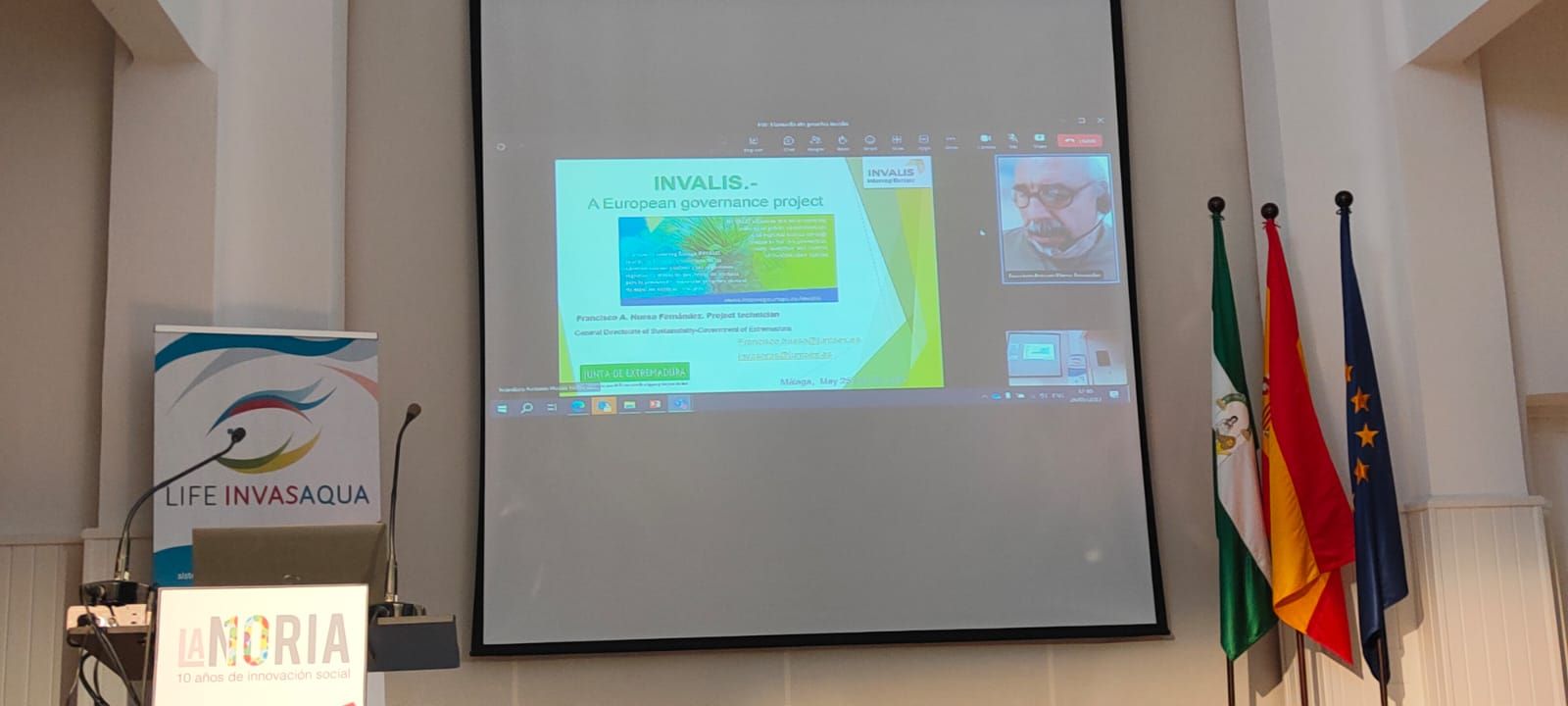
INVASAQUA participation
Participation in the "Exchanging Experiences on INVASIVE ALIEN SPECIES Projects in Europe" conference organized by INVASAQUA on May 25th & 26th.
IMPROVING POLICIES TO PROTECT BIODIVESRITY FROM INVASIVE ALIEN SPECIES
Biological invasions are considered to be one of the greatest threats to the biodiversity and natural ecosystems. Invasive Alien Species (IAS) can act as vectors for new diseases, cause native species’ extinction, change ecosystem processes, and reduce the value of land and water for human activities.
INVALIS will enable the participating territorial authorities to address common challenges associated with biological invasions such as a) knowledge gaps in ecosystems’ vulnerability to biological invasions and species’ distribution, b) lack of awareness about IAS environmental and socioeconomic risks, c) low level of cooperation between public authorities and key stakeholders for the implementation of IAS management measures, and c) conflicts of interests.
OBJECTIVE
INVALIS brings together 7 partners from 7 countries, to improve their environmental policies, by supporting policy measures for the prevention, early detection and control of IAS.
EXPECTED IMPACT
- Increased capacity of 200 staff of public administrations to effectively implement IAS management policies
- 10 million euros unlocked to support projects for increasing natural ecosystems’ resilience to IAS and to carry out eradication/control actions for high priority species
- Increased awareness of over 1000 stakeholders about IAS impact on the biodiversity, economy and human health
MAIN OUTPUTS & BENEFICIARIES
- 6 action plans to improve the addressed policy instruments, benefiting managing authorities and beneficiaries
- 3 interregional workshops, 2 site visits and 1 EU-wide policy learning event to promote capacity building among partners and stakeholders
- 18 policy briefs to transfer INVALIS lessons learnt to EU public authorities
- A risk assessment framework for EU public administrations to assess regional ecosystems’ vulnerability to IAS
- 4 baseline analysis reports on territorial needs and IAS management practices
€1,295,587.00
Environment and resource efficiency
OBJECTIVES & RELEVANT MEASURES
The Sectoral Operational Programme includes 16 priority axes, which are divided amongst transport and environment. Priority axis 12 supports the implementation of EU environmental policy on maintaining biodiversity and ecosystem services.
The challenges associated with biological invasions are addressed under:
REASONS FOR IMPROVEMENT
- In Greece, with the exception of certain interest groups (e.g. environmental agencies), there is a limited awareness and understanding of the threats posed by IAS and the actions required for their prevention and control.
- Additional measures need to be taken to support the implementation of the EU Regulation 1143/2014, including a) the creation of a national IAS database, b) the establishment of a surveillance system for detecting biological invasions, and c) the identification of the main pathways for IAS introduction.
- The monitoring, assessment and benchmarking of territorial ecosystems’ biodiversity status (which is related to the occurrence of non-indigenous species) has not been addressed, making difficult the evaluation of policy instruments’ impact.
MAIN FEATURES
The ROP of Lombardy includes 6 thematic objectives to promote sustainable development and achieve a good environmental status. Specifically, Priority Axis 6 prescribes measures for promoting the attractiveness of cultural and natural heritage.
INVALIS will address:
REASONS FOR IMPROVEMENT
1. There is lack of projects/initiatives (funded by the ROP) to address biological invasions in the Lombardy region, seeking to improve the conditions of the natural heritage, especially as regards touristic areas with fragile environmental conditions (e.g. NATURA 2000 sites).
2. TO6 foresees the protection of natural assets/resources, but there are not any concrete criteria for the selection of projects for protecting natural ecosystems from IAS, in spite of the high intensity of tourism and trade activity in the region.
3. The ROP does not link the protection of natural assets with the capacity of territorial authorities’ staff or intermediate bodies (e.g. Protected Areas’ management bodies) to administer all the actions required for managing the problem of invasive species in an integrated way. This requires not only re-skilling public administrations’ staff but also developing a common protocol for IAS management.
MAIN FEATURES
Extremadura’s Regional Operational Programme aims to promote smart, sustainable and inclusive growth (to reach the EU average level) by a) improving the rational use of resources, b) increasing the quality of environmental infrastructures and c) strengthening the environmental aspects relating to sustainable development.
INVALIS will address:
REASONS FOR IMPROVEMENT
- The ROP, apart from measures related to the revegetation and environmental restoration of closed landfills and waste containment areas, prescribe actions to improve natural ecosystems’ environmental quality and sustain biodiversity, which have not been yet explored or implemented within projects funded under this investment priority.
- The ROP has been drafted before the National Strategy for Biodiversity, and sets low targets for biodiversity conservation, whilst underestimating the environmental and socioeconomic risks associated with biological invasions. In addition, it does not include adequate funding instruments to support projects on IAS management.
OBJECTIVES & RELEVANT MEASURES
The ROP aims to boost economic growth in Corsica and achieve at regional level the Europe 2020 targets for smart, sustainable and inclusive growth. Priority Axis 5 aims to preserve the diversity of natural and cultural assets, supporting actions interlinked with the management of environmental risks (e.g. biodiversity loss) and climate change adaptation.
INVALIS will address:
REASONS FOR IMPROVEMENT
- The environmental actions foreseen under Investment Priority 6c have a limited scope, addressing exclusively issues related to improving the quality of touristic areas, and neglect the issues of protecting biodiversity and natural assets, which can be the key for including these areas in alternative tourism models (e.g. geo-tourism).
- The ROP does not include indicators for biodiversity conservation, making difficult to monitor Corsica’s progress towards national conservation targets, as defined in the National Strategy for IAS.
- Public authorities should enhance the role and facilitate the engagement of local authorities and key stakeholders including civil society and private sector (e.g. tourism enterprises) as appropriate.
MAIN FEATURES
The Regional Operational Programme (ROP) aims at promoting smart sustainable and inclusive growth, by addressing major development strategies such as regional competitiveness, sustainable development, environmental protection, the low-carbon economy, and economic and social infrastructure at regional/local level.
INVALIS will address:
REASONS FOR IMPROVEMENT
The OP makes explicit mention on the importance to protect the environment towards sustainable development, prescribing measures to improve Romania’s environmental status such as a) creating additional green spaces, b) reducing energy consumption in buildings, c) renovating cultural heritage sites and d) promoting sustainable modes of transport. Nonetheless, it does not adequately address the need to protect biodiversity from current environmental pressures such as climate change and biological invasions. The OP does not take into account the threats posed by IAS to biodiversity and economic activity, and thus lacks technical specifications for projects on a) increasing natural ecosystems’ resilience and b) mitigating the associated environmental and socioeconomic impacts.
MAIN FEATURES
In Latvia, there is a single operational programme, aiming to achieve key development priorities at regional and national level. OPGE aims to contribute in the sustainable development of Latvia's economy, by designing a green monitoring control system, preventing environmental risks in a timely manner, and ensuring society’s participation in environmental management.
MEASURES CONCERNED
The Operational Programme prescribes measures to sustain biodiversity and ensure the balance between nature conservation and economic activity such as:
- Investigating the environmental conditions in biotopes to determine their vulnerability status
- Updating inventories of endangered, threatened and special concern species and developing conservation plans
- Mitigating the impacts of tourism and other economic activities on biodiversity and ecosystem services, especially in coastal and marine protected areas
REASONS FOR IMPROVEMENT
OPGE will support projects congruent with its investment priorities V (protection of the environment). Along these lines, OPGE will have to address the most prevailing challenges associated with IAS in Latvia (not yet explored by funded projects, and lagging behind), by supporting initiatives that will deal with a) the lack of databases with high priority invasive species and fragile natural ecosystems, b) poor monitoring infrastructures for detecting new arrivals, and c) the limited awareness about IAS environmental and socioeconomic risks.

Participation in the "Exchanging Experiences on INVASIVE ALIEN SPECIES Projects in Europe" conference organized by INVASAQUA on May 25th & 26th.
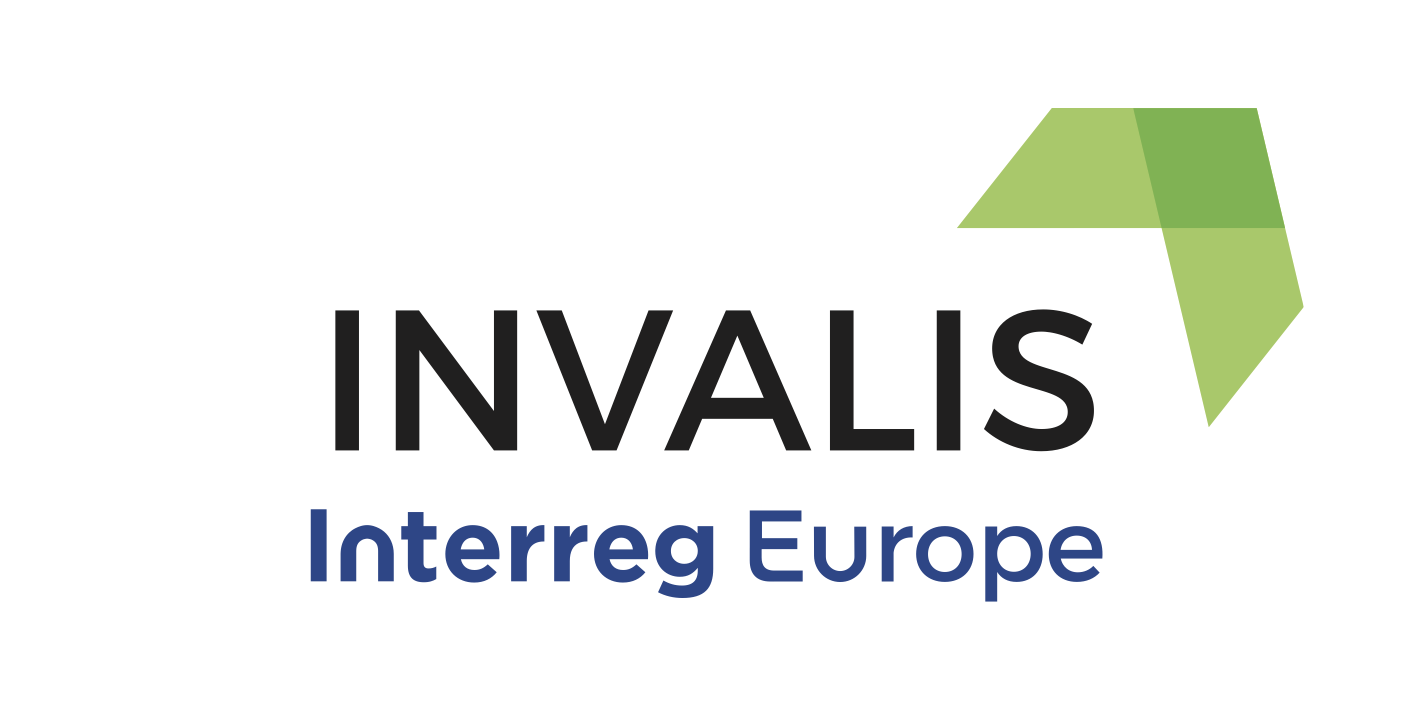
Last Project Monitoring Meeting to be held in Merida, Extremadura, Spain
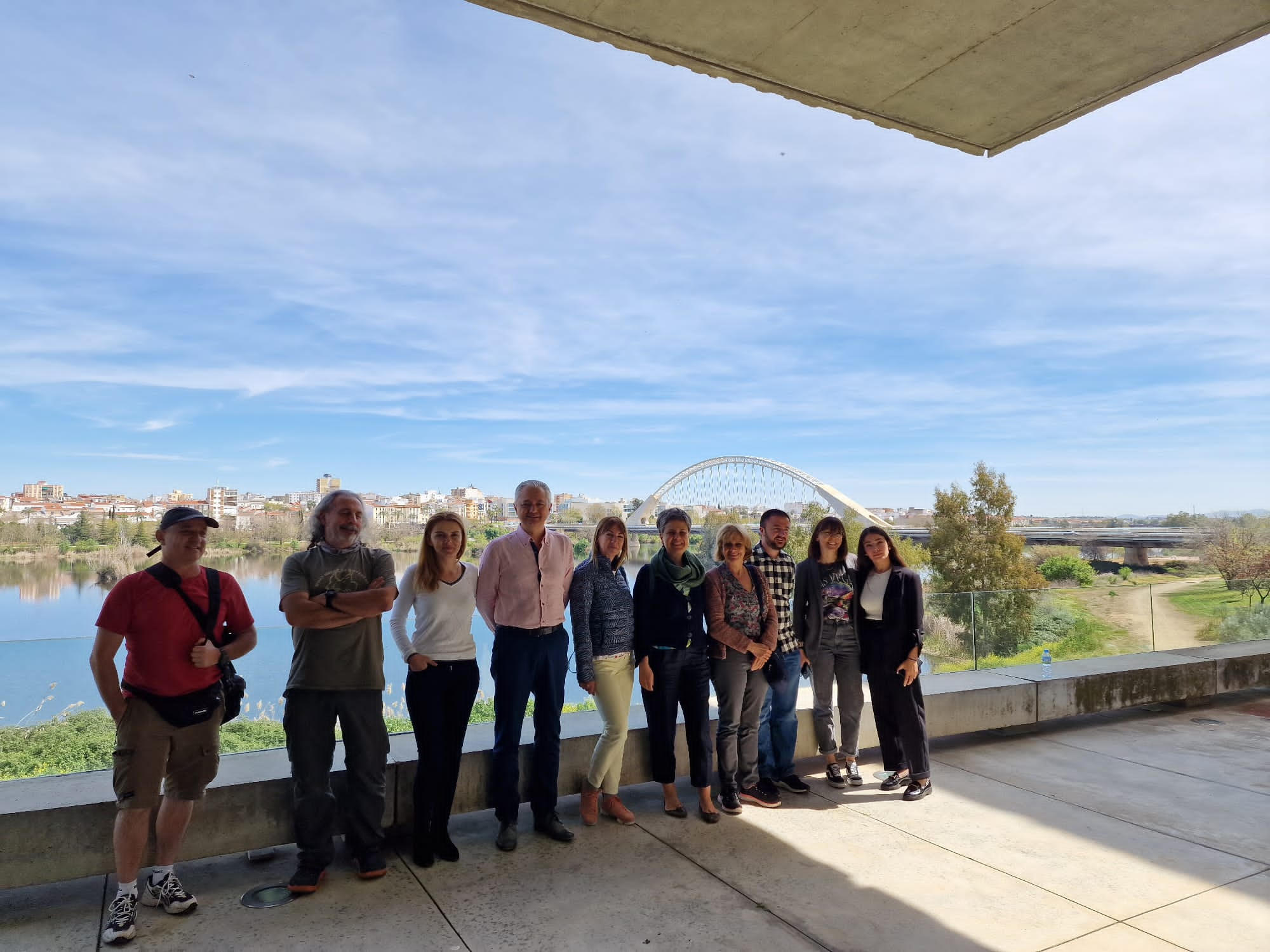
2nd Monitoring meeting in Merida Spain

On Wednesday 22/02/2023, the meeting of interested parties of the INVALIS project in Greece took place online. The subject of the meeting was "Actions rega...
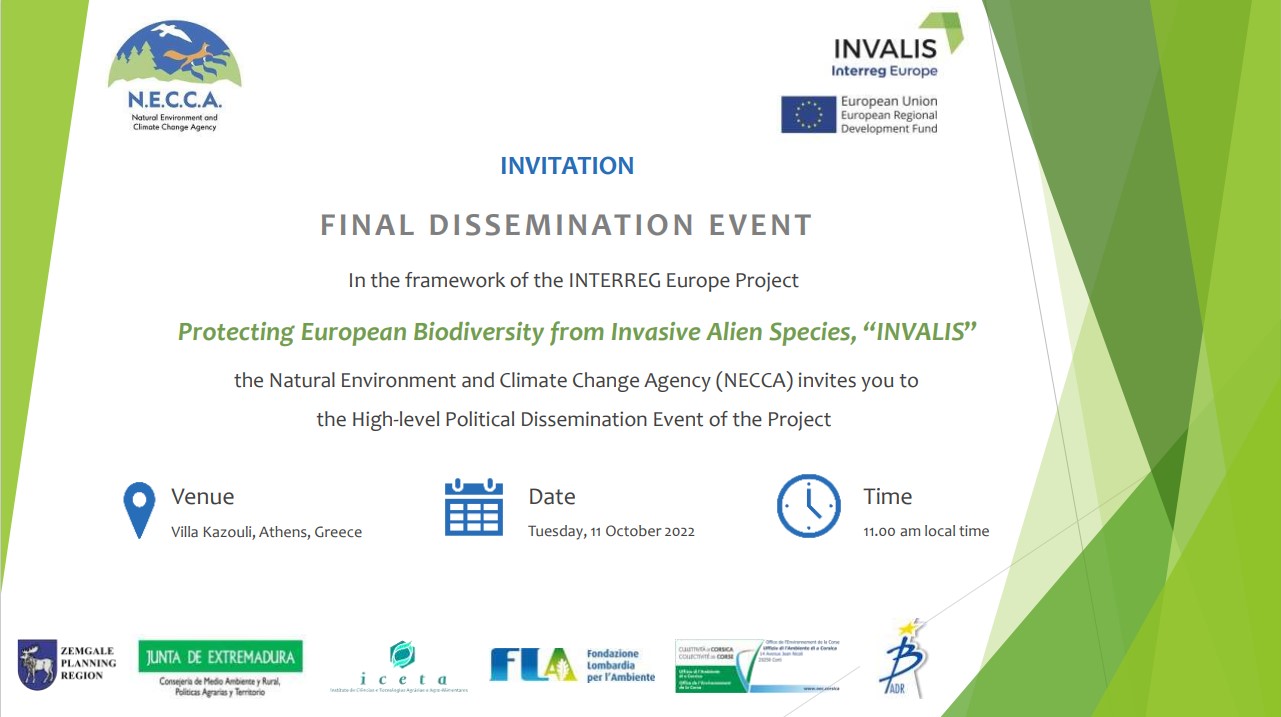
INVITATION FOR THE HIGH LEVEL DISSEMINATION EVENT, ATHENS, GREECE
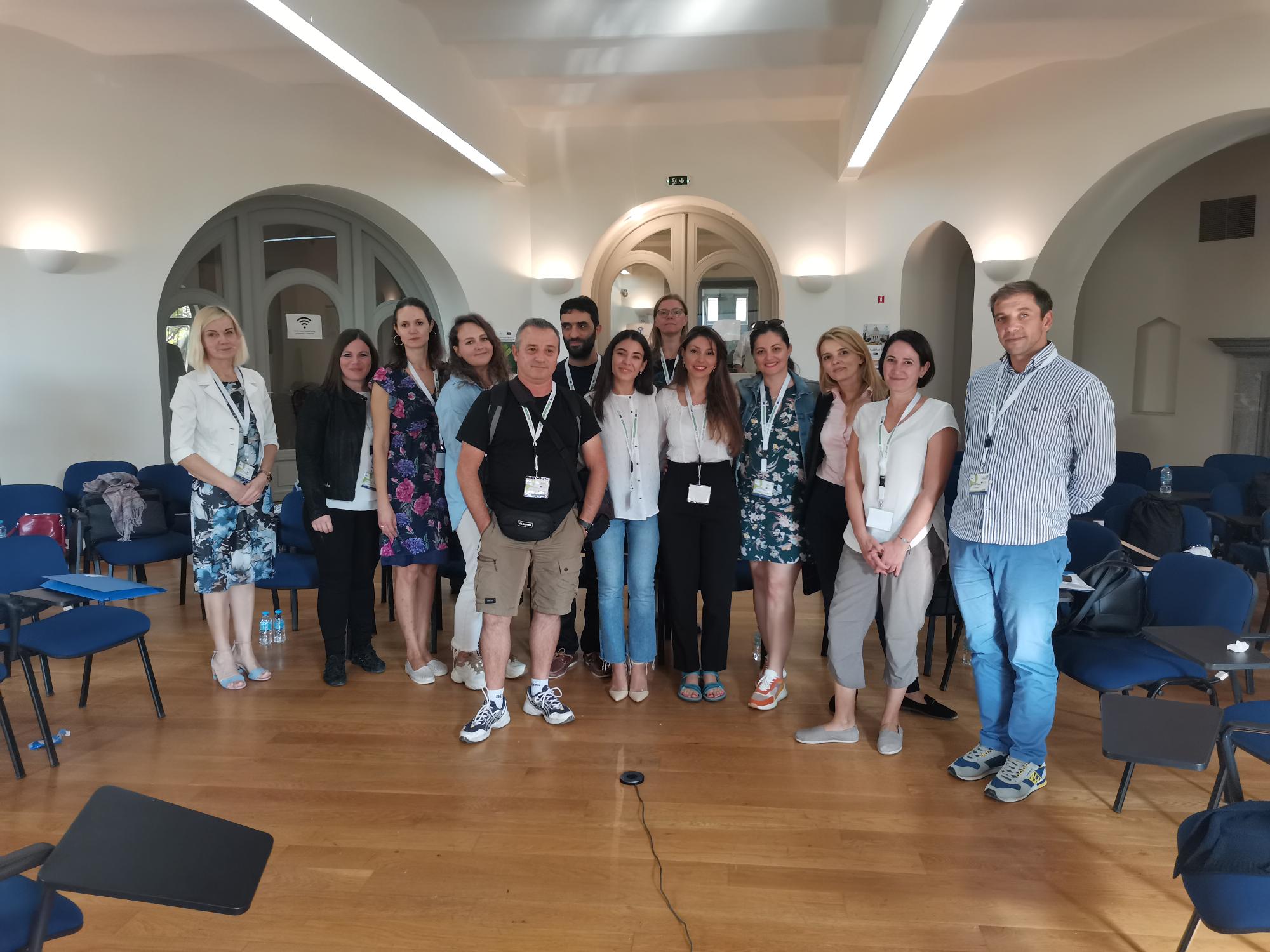
The final INVALIS dissemination event took place in Vila Kazouli, Athens, Greece, on October 11 2022.
ZPR organized seminar “Capacity building measures for target groups involved in environmental resource management and prevention of potential environment"
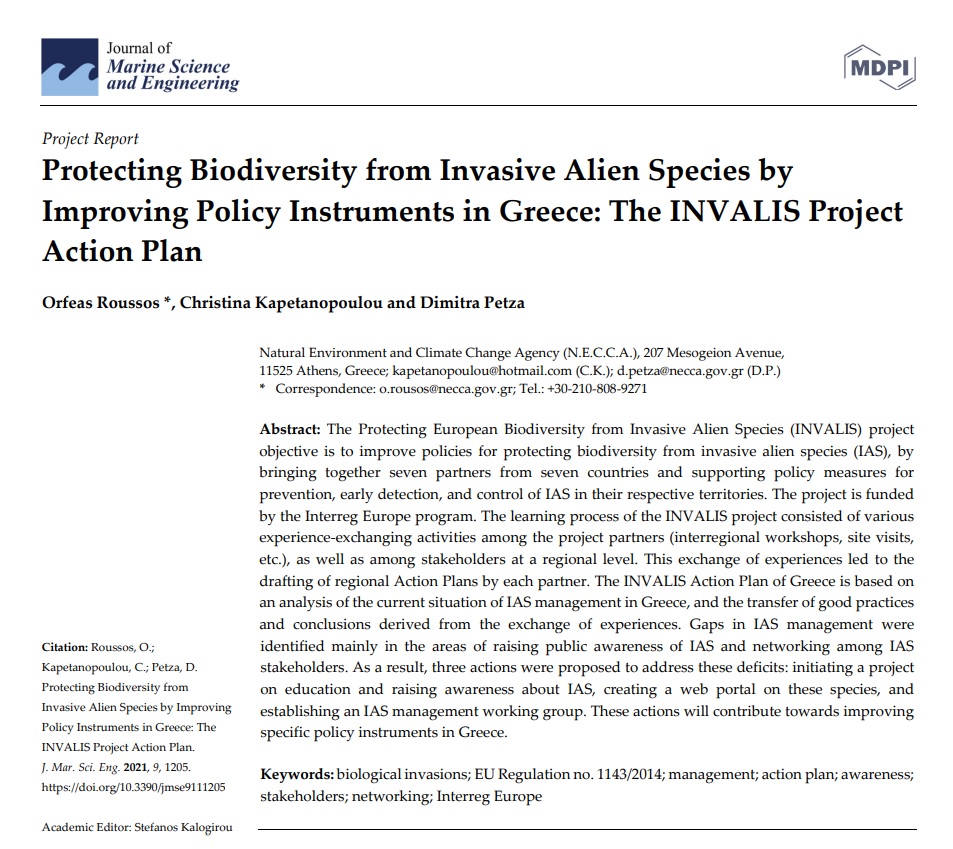
Publication of INVALIS Action Plan in Greece on Journal of Marine Science and Engineering
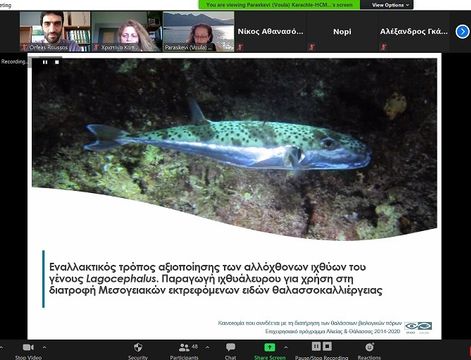
6th Stakeholder Meeting in Athens, Greece on the 6th June 2021
EU wide Policy Learning Event